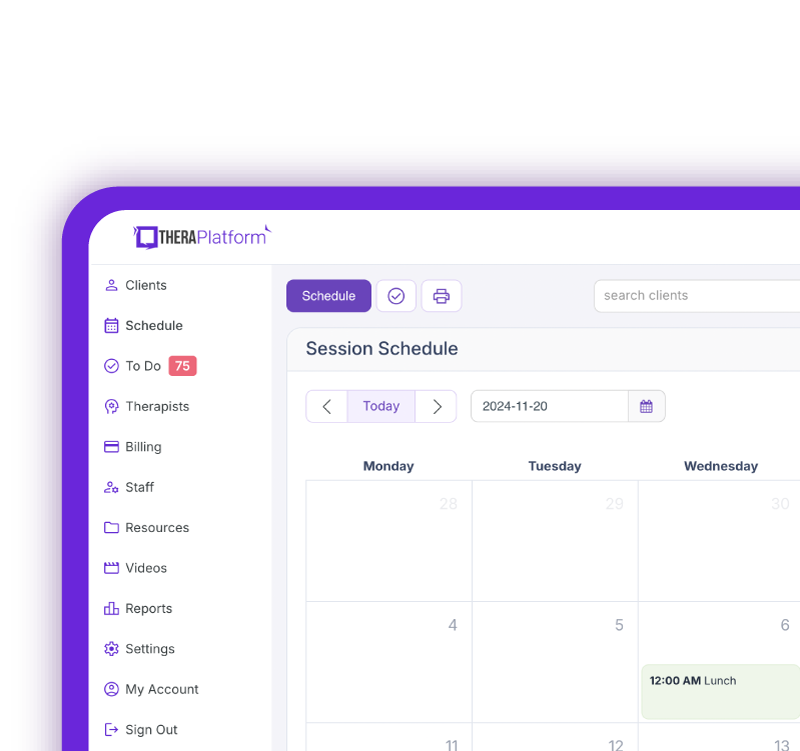Subpoenas

Receiving a subpoena is one of the great sources of dread for any mental health professional. It takes considerable effort and time to deal with a subpoena and—more often than not—they ask you to breach confidentiality.
Summary
- A subpoena is a legal document that requires a therapist to provide testimony or produce records. It can be issued by a lawyer or the court and must be properly served to be valid.
- Therapists should verify the validity of the subpoena, consult an attorney or malpractice insurer, and document all communication and actions taken in response.
- If a client does not consent to releasing records, therapists can object in writing, negotiate with the issuing party for limited disclosure, or file a motion to quash to prevent disclosure.
- Therapists can request payment for preparing records or testifying, and they should only provide the minimum necessary information to comply with legal requirements while safeguarding client privacy.
- By leveraging an EHR like TheraPlatform for efficient documentation, therapists can maintain accurate records.
Streamline your practice with One EHR
- Scheduling
- Flexible notes
- Template library
- Billing & payments
- Insurance claims
- Client portal
- Telehealth
- E-fax

Maybe the most intimidating, however, is that therapists usually don’t know what to do when they receive one. Never fear, here is the guidance you need for responding to a subpoena.
What is a subpoena?
A subpoena is a legal document requiring the therapist to testify and/or produce certain therapy records for a specific date. They are frequently created by a lawyer but can also be issued by the court. Subpoenas are usually served by a neutral third party, such as a sheriff’s deputy or a process server.
Types of subpoenas
- Subpoena duces tecum. This is an order that requires the therapist to bring specified records to a certain place at a certain time. Requested records may include progress notes, psychotherapy notes, and psychological assessment materials.
- Subpoena ad testificandum. This type of subpoena orders the therapist to appear in court or at a deposition to provide testimony.
Is the subpoena valid?
The first thing you need to do when you receive a subpoena is to make sure it is valid.
The following issues may render a subpoena invalid:
- You aren’t given enough time. The party issuing the subpoena must give you a certain amount of time to comply. If you are served the subpoena after that deadline, it is not valid. However, you may be given as little as five days to respond depending on the type of subpoena and the jurisdiction.
- It wasn’t properly served. To be valid, the subpoena must be delivered in person or by certified mail. If it was given to a non-designated person or delivered in a way that can’t be proven to the court, it is not enforceable.
- You are out of the court’s jurisdiction. A subpoena is invalid if the court does not have jurisdiction over the person being subpoenaed. For example, a subpoena issued from another state may not be enforceable, depending on which state it came from and what type of court. A therapist should not assume, however, that a subpoena is invalid just because it came from a place far away. You can ask the court where the matter is pending for clarification.
Practice Management + EHR + Telehealth
Manage more in less time in your practice with TheraPlatform

How to respond to a valid subpoena
Let’s say that the subpoena you were issued checks all the boxes.
Here is what to do next:
- Do not ignore the subpoena: You should always respond to a subpoena, even if it is issued by a lawyer without a court order. If you fail to respond, you can be found in contempt of court and have to pay fines. You could even face jail time, although that is highly unlikely.
- Document all communication and actions: When you receive a subpoena, it becomes a legal issue. To cover yourself, all communications and actions you take concerning the subpoena need to be clearly documented. If it isn’t written down, it may as well not have happened.
- Consult an attorney: iIf you are receiving a subpoena, your client is involved in some sort of legal action, which likely means they have an attorney. You can call your client’s attorney for advice on how to handle the subpoena. You can also contact your own attorney. If you are worried about spending money, the insurance company that handles your malpractice insurance will probably offer you free advice.
- Ask your client for authorization: Although unlikely, don’t just assume that your client won’t allow you to disclose their records or discuss your case in court. Once you explain the situation, they may give you consent to waive some aspect of confidentiality. Always obtain a written authorization that specifically outlines what information you are allowed to share.
- Object in writing before the deadline: If your client does not want their personal information shared, the therapist should object in writing to a subpoena. Objecting might provide the parties with the opportunity to modify the requirements to the satisfaction of both sides. At the very least, it will delay the process until you can formulate a prudent game plan.
- Talk to whoever issued the subpoena: Before handing over any information, it is a good idea to have a conversation with the person who issued the subpoena. Maybe they can be convinced that the information requested isn’t that necessary. Or, maybe they can be satisfied with a summary document rather than providing them with the entire therapy record. By talking out the problem, you may be able to change their mind. Just be careful to keep situations hypothetical and protect confidentiality.
- File a motion to quash: If everything above fails, you can try to file a motion to quash. This is a legal maneuver to have the court remove the subpoena based on your professional objections. In a motion to quash, the therapist presents their reasons for not wanting to provide the information requested in the subpoena. This usually involves an argument about breaking confidentiality and damaging the client and the therapeutic relationship. There is a specific legal procedure to file the motion to quash and it is probably best to administer it with the help of a lawyer.
- Ask for payment upfront: If you must testify or turn over records, you can still be paid for your efforts. Therapists are not expected to work for free, even when subpoenaed. Therapists can charge a reasonable fee for providing a copy of their records, including the cost of supplies and preparing document summaries.
- Clinicians can request even more money for testifying as an expert witness. This cost may include traveling to court, waiting to be called as a witness, and the testifying itself. Therapists should negotiate fees with the issuing party ahead of time. Sometimes, paying these costs is enough to get the issuing party to reconsider.
- Provide as little information as possible: You may be forced to testify or hand over notes but you can still exercise discretion. Only provide the records that you are ordered to and always answer questions with your client’s personal health information in mind. Even with a subpoena, you can do quite a bit to protect your client’s confidentiality.
You are not alone
Being served a subpoena is undeniably nerve-racking. However, you can perform several steps to preserve a client’s confidentiality and ensure you have covered your bases.
After taking the appropriate measures, there is a good chance you won’t have to testify or provide as many records as you originally thought. Besides lawyers, your colleagues and supervisors are a good source of support. Many of them have faced the dreaded subpoena and they will be happy to help you manage the situation. And just remember, even if it turns into an unpleasant experience, you will be paid handsomely for your work.
Streamline your practice with One EHR
- Scheduling
- Flexible notes
- Template library
- Billing & payments
- Insurance claims
- Client portal
- Telehealth
- E-fax

Resources
Theraplatform is an all-in-one EHR, practice management and teletherapy solution that allows you to focus more on patient care. With a 30-day free trial, you have the opportunity to experience Theraplatform for yourself with no credit card required. Cancel anytime. They also support different industries including mental and behavioral health therapists in group practices and solo practices.
More resources
- Therapy resources and worksheets
- Therapy private practice courses
- Ultimate teletherapy ebook
- The Ultimate Insurance Billing Guide for Therapists
- The Ultimate Guide to Starting a Private Therapy Practice
- Mental health credentialing
- Insurance billing 101
- Practice management tools
- Behavioral Health tools
Free video classes
- Free on-demand insurance billing for therapist course
- Free mini video lessons to enhance your private practice
- 9 Admin tasks to automate in your private practice
References
American Psychological Association Committee on Legal Issues (2016, July/August). Protecting patient privacy when the court calls. Monitor on Psychology, 47 (7), 64. Protecting patient privacy when the court calls
Cornell Law School: Legal Information Institute. (2023, July). Motion to quash. motion to quash | Wex | US Law | LII / Legal Information Institute
Louie, S. (2020 January 7). Psychology Today. How therapists should handle subpoenas. How Therapists Should Handle Subpoenas | Psychology Today



